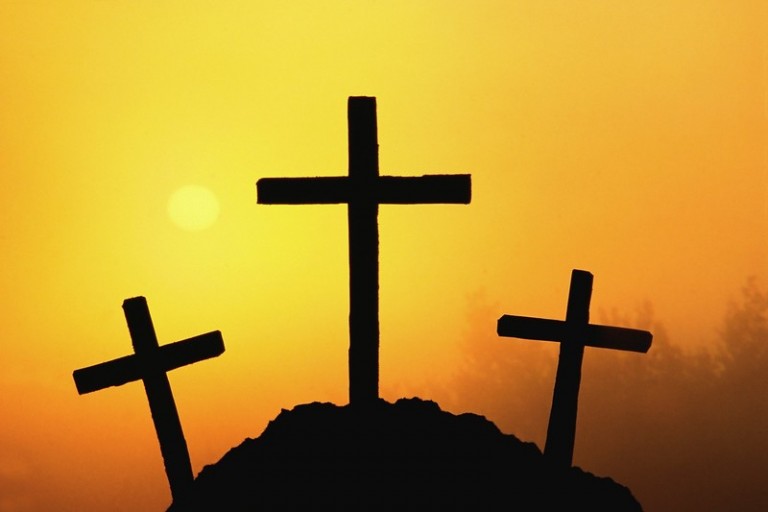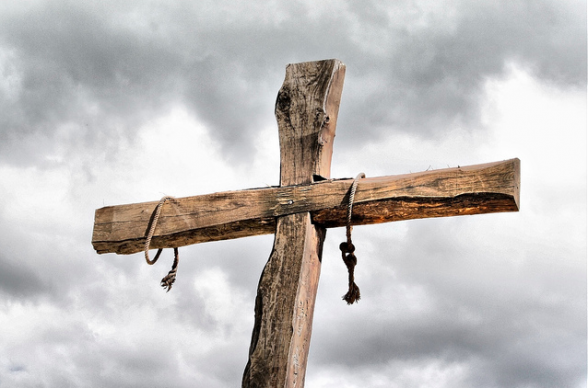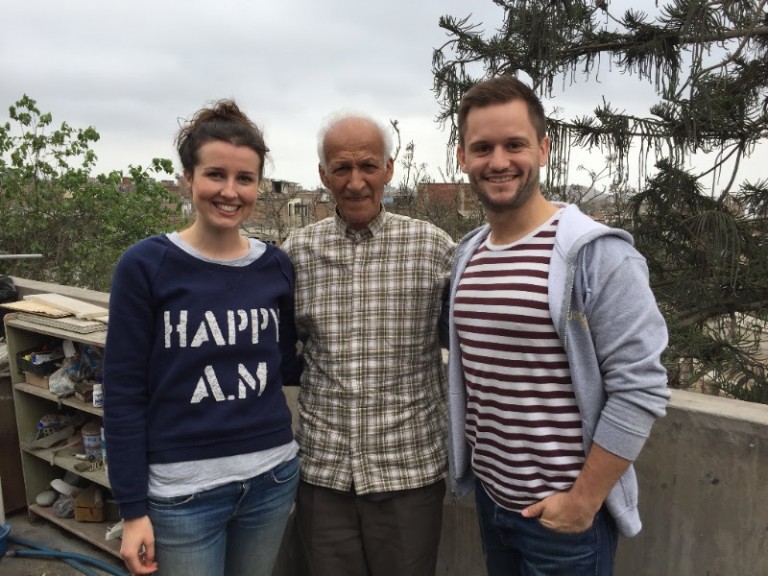‘When the soldiers had crucified Jesus, they took his garments and divided them into four parts, one part for each soldier; also his tunic. But the tunic was seamless, woven in one piece from top to bottom, so they said to one another, “Let us not tear it, but cast lots for it to see whose it shall be.” This was to fulfil the Scripture which says, “They divided my garments among them, and for my clothing they cast lots.”’ John 19.23-24
The King of the Jews is what it said above Christ’s cross. But the typical picture of royalty has the king or queen dressed in all their finery: in ermine robes with a golden crown encrusted with jewels and a sceptre and orb. These are not the robes which King Jesus had at Easter.
On the cross, his robes had been stripped off him. His garments had been divided amongst the execution squad of soldiers and his tunic was gambled for. The soldiers were simply plundering the condemned man’s possessions as they had done many times before at countless other crucifixions. They were unaware that in this case they were fulfilling what had been predicted about the Messiah, hundreds of years before. God had arranged it this way.
Notice in particular Christ’s outer tunic. Jesus had laid aside his tunic earlier in John’s gospel. When he washed his disciples’ feet, he took off his outer garment, so as he could cleanse them. He humbled himself with a basin and a towel – extremely humbling for a rabbi in those days – because he knew that his disciples needed purified. Not purified, of course, from dust and grime, but from sin and guilt. The foot-washing was symbolically looking ahead to the cross. Because there too Jesus was to cleanse people. In fact the cross is the ultimate cleansing. The cross really is washing away sin.
At Easter we are reminded that Jesus took all our guilt and shame upon himself in order to cleanse us. His clothes had been lost – all his clothes, despite the loincloth portrayed in some paintings. The King set aside all his robes. He set aside all his glory and took all our shame. He deeply humbled himself, humiliated himself, and entered into the shame of our sin. All our dishonour, disgrace and sinfulness he identified with on the cross.
If you recognise sin in your heart and life, then you will know that it needs dealt with. You need to align yourself with King Jesus. He is the only one that can provide the necessary cleansing. Indeed he has done that on the cross.
He asks you now to come to him and receive his robe of righteousness, which is what the Bible speaks of elsewhere (e.g. Rev 6.11). Christ is willing and able to transfer his robe for ours. It is a marvellous exchange! While he takes on our shame, he offers us his righteousness, goodness, perfection and purity. So as when we stand before the Judge on that final day, we will be perfectly covered and acceptable. Take him up on his offer, in repentance and faith. Exchange your shame for his righteousness. He will take your shame; you can have his righteousness. It is not Christ’s outer tunic that the soldiers needed, which they gambled for. But his invisible robes of righteousness. We all do.
Sincerely in Christ,
Bill




